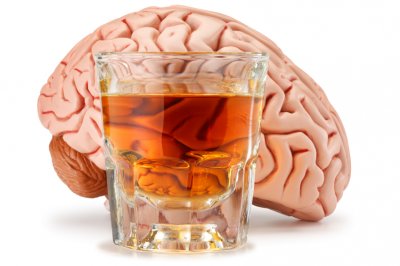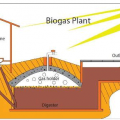You start your evening at a party, and order a drink from a waitress. One drink turns into to two, then three, and you notice yourself relaxing and laughing louder than you normally do. In not too long, your stumbling slightly, and having trouble enunciating when you speak. When you wake up in the morning your head is spinning and throbbing, and you aren’t able to clearly recall everything you did the previous evening.
This illustration shows the punctuated effects of alcohol on the brain. The brain is a complicated network of neurons and synapses, which all work together to keep our physical and mental abilities running smoothly. If any of these processes are disrupted, the result can have an impact on the brain’s functions. In addition to short term effects, drinking can cause long term effects that permanently alter the way the brain functions. Although most people aren’t aware of just how much alcohol can affect the brain, having an understanding can help us to make better, more informed decisions about our drinking.

Alcohol Damages the Brain
Heavy drinking- even in an isolated incident- can impair and disrupt the sensitive process of the brain’s neurotransmitters. Drinking alcohol causes neurotransmitter to fire more slowly than normally, which can make you feel tired or sleepy. Alcohol consumption can also contribute to dramatic changes in mood, such as anxiety, irritability, depression, loss of memory, and seizures.
Excessive drinking over a long period of time can permanently alter neurons, and shrink brain cells and show attention towards California alcohol treatment . This can cause the total size of the brain to decrease, and create a larger inner cavity in the brain than is normal and healthy. When this happens, a wide range of our abilities are affected, including coordination and motor skills, the body’s ability to regulate temperature, quality of sleep, stabilization of mood, and learning and memory.
Alcohol and Neurotransmitters
Glutamate is a neurotransmitter than is particularly sensitive to the effects of alcohol. Although glutamate has many functions, it is especially important in the formation of memories. Scientific studies have revealed that the lack of memory during heavy drinking- or blackouts- are likely the result of severe, adverse effects of alcohol on glutamine.
Alcohol also affects another neurotransmitter called serotonin, which is responsible from pleasure and endorphin regulation. Drinking can flood the brain with serotonin, causing some of the feelings of relaxation and happiness that are produced while drinking. In heavy drinkers, the brain becomes used to the effect of alcohol, and seeks to counteract its effects by anticipating the drink and holding back the release of serotonin. This can result in a variety of negative effects, which include tolerance, dependence, and withdrawal.
Treatment for Alcohol Abuse
If you’ve noticed that alcohol is causing a problem in your life, than it may be time to stop drinking. Although quitting drinking and ending an addiction is easier said than done, there are a variety of treatment programs available that specialize in helping individuals to recover from the devastating effect of alcohol and drugs.
Northbound Treatment Services offers a range of programs, all customized to the severity and intensity of their client’s addiction to alcohol. Alcohol abuse can vary in different individuals, but the most appropriate option is generally intensive inpatient care. After the completion of an inpatient program, Northbound offer’s their clients a variety of extended care options, including programs specifically designed to support clients with their careers or education, Christian based LINKS recovery, and Alumni support groups.
Reach out to one of our treatment professionals today to see if treatment is appropriate for you. Call us today at (866) 538-4356.




























No Comments
Leave a comment Cancel